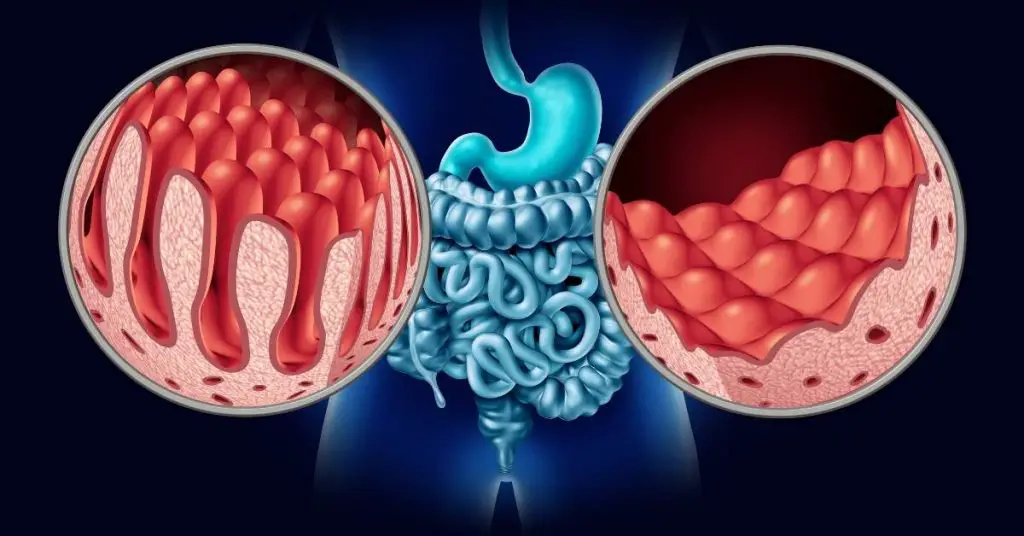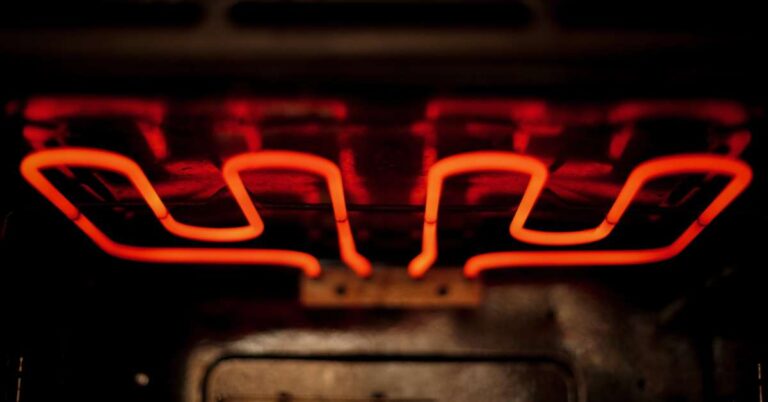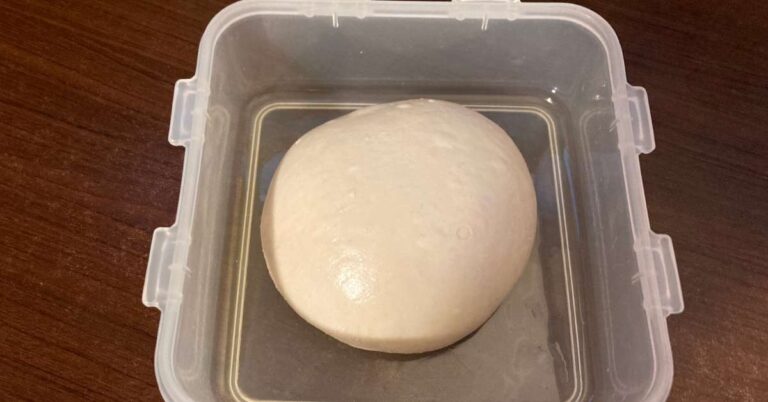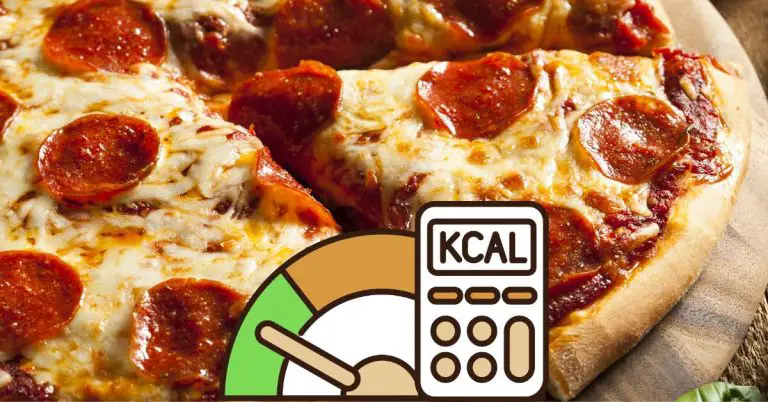Why Does Pizza Make Me Sick? Plus How You Can Prevent It
Pizza is delicious and almost everyone’s favorite food, but for some people it comes with a lot of downsides. If you find yourself feeling sick after eating a hot slice it’s probably because of a few common causes.
There are three mains ways pizza can make you sick – gluten intolerance, lactose intolerance and simple indigestion. The best ways to avoid feeling sick after eating pizza is to try lactose free cheese, gluten free crust and sticking to healthier Neapolitan styles.
Let’s go into the reasons why pizza might be making you sick and what you can do to prevent sickness and start enjoying pizza again.
Gluten Intolerance Can Cause An Upset Stomach After Eating Pizza
Gluten intolerance is a condition that affects over 18 million people in the United States, especially those with celiac disease. It basically has to do with the way your immune system reacts to gluten – a protein found in wheat and other grains.
Gluten is, of course, one of the key components that helps pizza dough rise and gives the crust it’s distinctive chewy texture.
If you suffer from gluten intolerance or celiac disease, the pizza crust could be what’s making you feel sick. When this happens, your body overreacts by damaging the walls of your small intestine which prevents you from being able to properly absorb food.
A few of the symptoms of gluten intolerance include nausea, vomiting, fatigue and abdominal pain. If you experience these symptoms regularly after eating pizza, you should stop eating it and get in touch with your doctor.

Lactose Intolerance Can Cause Bloating & Gas After Eating Pizza Cheese
Lactose intolerance is another common condition that could potentially be making you feel sick after eating pizza.
Lactose intolerance is a condition where your body loses its ability to produce the enzyme that digests foods that contain lactose like cheese and milk. The enzyme that digests lactose is called lactase and for many people their body produces less and less lactase as they get older.
You might be lactose intolerant if you find yourself experience bloating, diarrhea or gas after eating a pizza with lots of cheese on it.
Unhealthy Pizza Is Often The Cause Of Indigestion
Sometimes the reason why pizza can make you feel sick is simple indigestion. This happens when either you’ve eaten too much or your digestive system isn’t working well.
Takeout pizza, especially American style takeout pizza, is very heavy compared to its Italian or Neapolitan counterparts. American style pizza has lots of sugar, salt and often features a very thick unfermented crust. This can be a recipe for digestive disaster unless you limit yourself to a slice or two.
So it may not be pizza in general that’s not agreeing with you but rather the type of pizza you’re eating. Try opting for a smaller pizza from a higher quality pizzeria rather than something like Dominos or Little Caesar’s which inject a lot of additives like salt and sugar in their ingredients to make them more flavorful.
How To Prevent Feeling Sick After Eating Pizza
Use Lactose Free Cheese Or Lacteeze
If lactose intolerance is what’s making you sick from eating pizza, thankfully it’s something that’s relatively easy to address.
Aged cheeses are naturally low in lactose, which makes them easier to digest for people with lactose sensitivity or intolerance. This includes cheeses like Swiss, Parmesan and many kinds of Cheddars.
You can also buy lactose free cheese, including mozzarella, which (in my experience) don’t taste any different from their lactose-rich counterparts. So definitely check these cheeses out if you suddenly find yourself sensitive to dairy.
Another option is to take something like Lacteeze before eating a pizza with cheese. These pills, or drops, include the lactase that your body has stopped producing naturally. It’s a very easy way to avoid feeling sick after eating pizza.
Try Gluten Free Crust
Gluten is one of the core components of traditional pizza crust. It’s what gives the crust its chewiness as well as helps trap the gas produced by yeast which makes the crust rise in the oven.
But if gluten is what’s making you sick after eating pizza, you’ll need to find a gluten-free alternative.
Thankfully, there are lots of options as long as you accept that it’s not going to taste or feel anything like a traditional pizza crust. My advice is to stick to a thin crust where you won’t notice the difference as much.
I recommend trying something like a gluten-free wrap as the base for your pizza crust, like this one available on Amazon. Or if you’re making your own crust, you can use a mix like this one from Amazon that’s made from cornstarch, rice flour and potato starch. It won’t have the same rise or puffiness as a traditional crust, but it’s a great alternative.
Stick To Neapolitan Style
Neapolitan style pizza is naturally a much lighter choice than American style pizza and is a great choice for people with sensitive stomachs.
Assuming you’re not gluten or lactose intolerant, you might want to stick to Neapolitan style pizza to avoid a sick stomach afterwards.
Neapolitan pizza uses far fewer ingredients than American style pizza – water, flour, yeast, salt, tomatoes, fresh mozzarella and basil (for a margherita). By contrast, most American styles of pizza contain much more salt and usually include sugar and lots of other potentially upsetting seasonings.
American style pizza is also, usually, much heavier – thicker crust, more oil and much more cheese. The cheese is also low-moisture mozzarella which naturally contains more salt.
This is why Neapolitan style pizza is my go-to style of pizza to make at home even though pizza doesn’t usually make me sick anyways. It’s just easier to digest and makes me feel satisfied afterwards and not weighed down by all the extra ingredients.

Want to learn how to make Neapolitan pizza at home? Try my recipe here.
Try Fermenting Your Dough
Whenever I make pizza at home, no matter what style, I always give the dough at least 24 hours to cold ferment in the fridge before using it. And if I have the time I’ll even let it ferment for 48-72 hours.
When the pizza dough is fermenting the starches and sugars in the dough break down. You can almost think of it like the dough is pre-digesting itself for you so that when you eat it your body will have an easier time processing it. This can go a long way towards avoiding an upset stomach after eating the pizza.
Fermented dough also have a fluffier texture and a richer flavor than dough that’s been made the same day. If you need a recipe, I highly recommend following my no-knead Neapolitan pizza dough recipe. This dough is fermented for a minimum of 24 hours and is one of the most digestible pizza crusts I make.
Use Probiotics Supplements
As many of you probably know, the bacteria that live in our gut and digestive tract are incredibly important. Without this bacteria, our bodies don’t have the ability to properly digest different kinds of food, including pizza.
Unfortunately, due to our modern lifestyles and diets, as well as the overuse of things like antibiotics, most adults have a severely weakened microbiome. This means that many of the helpful bacteria that helps us digest food is either gone or diminished to the point of being useless.
Thankfully, we now have some really effective probiotic supplements commercially available at most drug stores in the United States and around the world. These probiotic supplements essentially contain a dried version of these helpful bacteria that activate in your stomach and help you digest your food. It might be just the thing you need to stop feeling sick after eating pizza.
I take a supplement that contains 10 billion cells of helpful bacteria before each meal and it really helps. As I’ve gotten older, I started to find that pizza wasn’t sitting nearly as well in my stomach compared to when I was younger. I would frequently find myself bloated and suffering from acid reflux, which is not a fun way to enjoy mu favorite food! However with these probiotic supplements, I don’t have any of these problems anymore.
There are lots of different probiotic brands out there but the one I use is very affordable and well worth trying if you’re having trouble with pizza making you sick. If you want to check it out, you can find it on Amazon.
Related Questions:
Why Do I Vomit When I Eat Pizza?
If you feel nauseous or vomit immediately after eating pizza, it’s probably a case of food poisoning. This is especially true if pizza normally doesn’t cause this reaction. Food poisoning happens when your food is contaminated by harmful bacteria and is often accompanied with bloating and severe belly pain.
Is Pizza Bad For Your Stomach?
Pizza can be bad for your stomach if it’s made with lots of processed ingredients or if it has too many toppings. If you’re concerned that your favorite pizza isn’t good for you, try going for a smaller pizza or opt for an Italian style Neapolitan pizza which contains only fresh ingredients and sensible serving sizes.
How Long Does Food Poisoning Last From Pizza?
Food poisoning from pizza, as with any food, can last anywhere from several hours to several weeks. In most cases, food poisoning symptoms should clear up within a few days. However, if you can’t keep liquids down or you see blood in your stool or vomit don’t hesitate to call for emergency help.







Hi im just confused I’m paying attention. To when I don’t feel good had fried dough on Saturday, pizza today both times I feel tired, light headed just not right, some heart burn but not alot, I even get stuffy in my nose ??? Feel drained after eating it ?? Ty
Hi Donna, sorry to hear pizza isn’t sitting well with you. In your case, I’d recommend staying away from fatty, bready foods for a little while so your stomach can recover. You may find that after a break, your body can better digest these kinds of foods. Good luck!